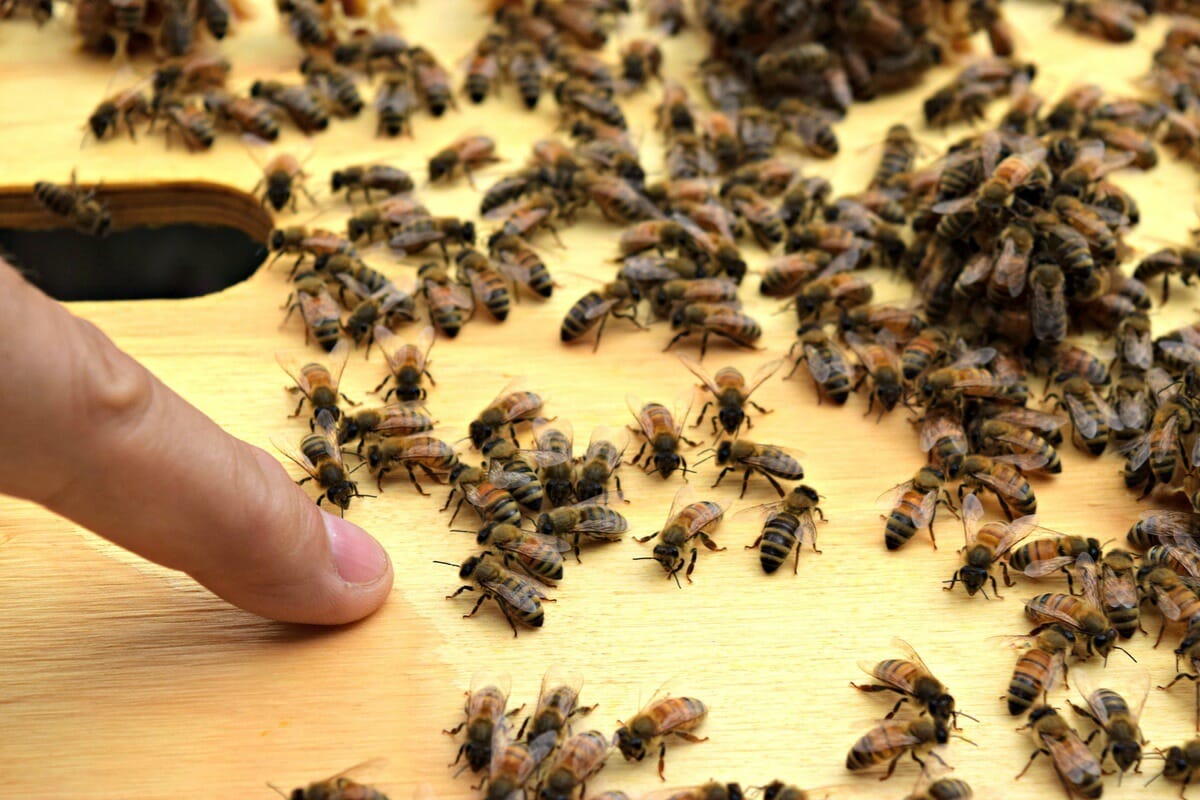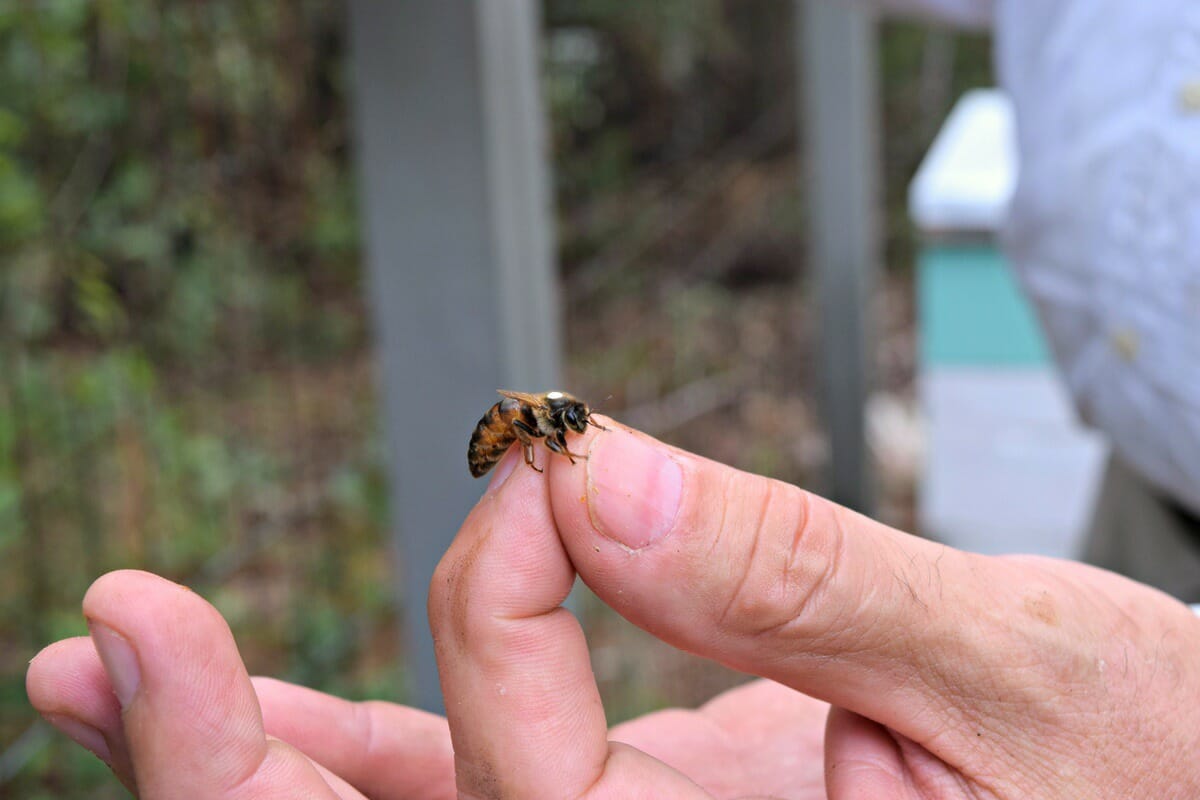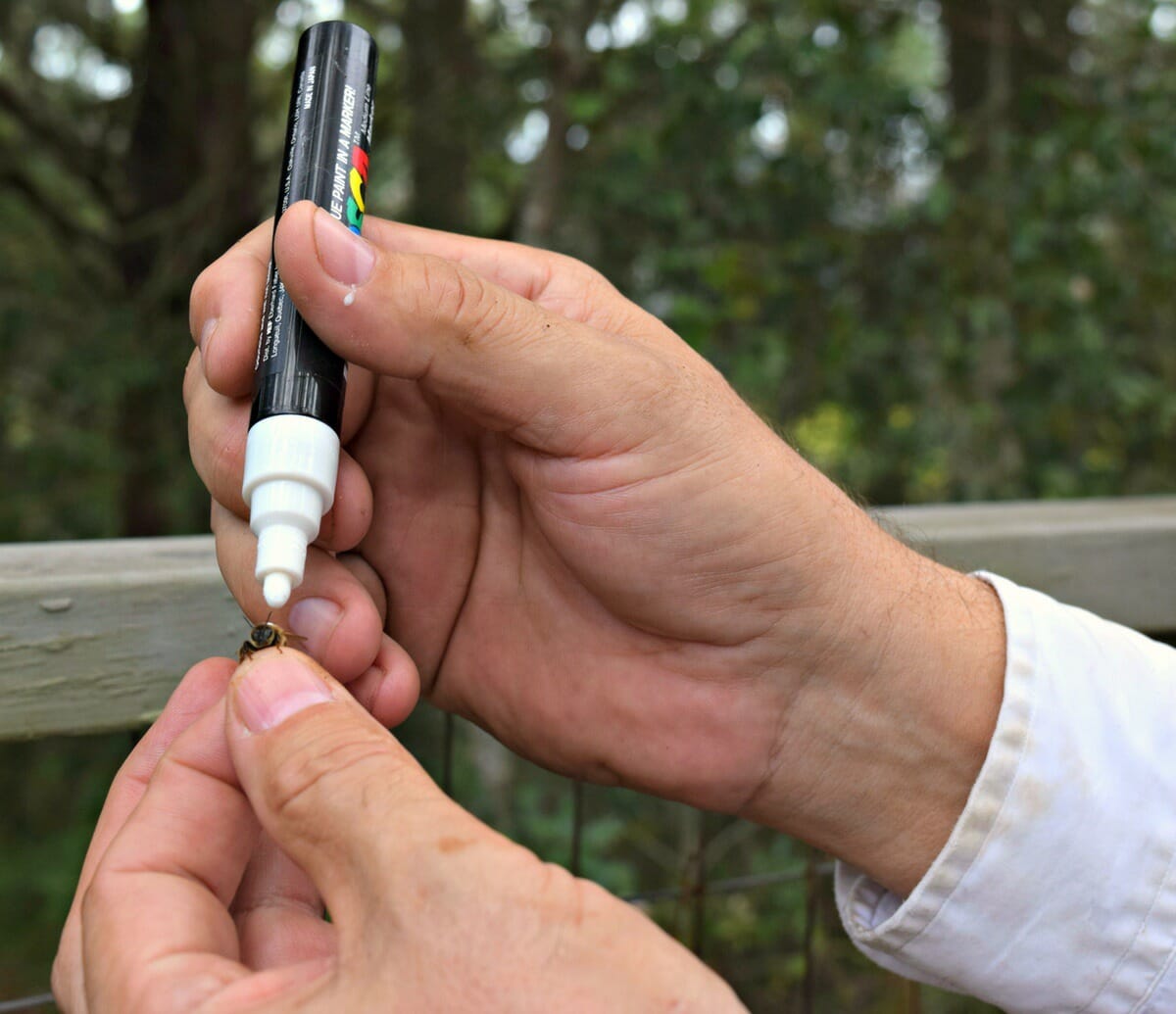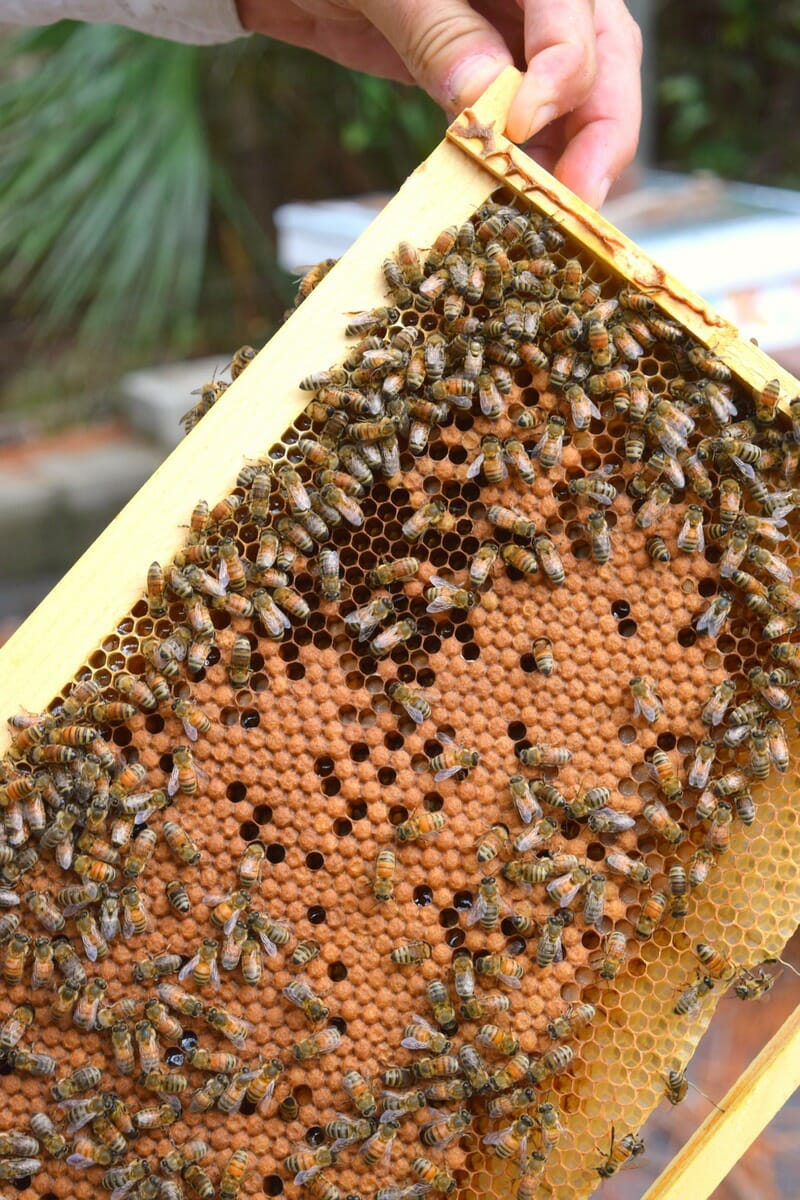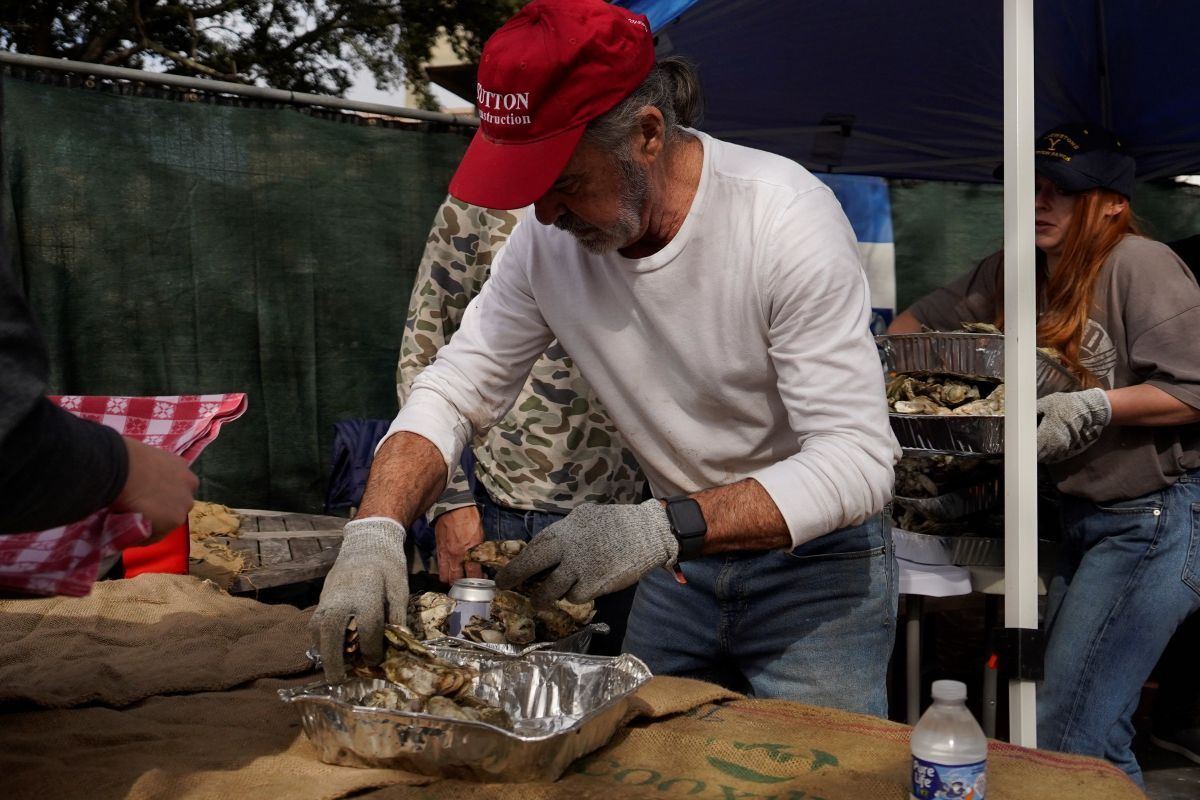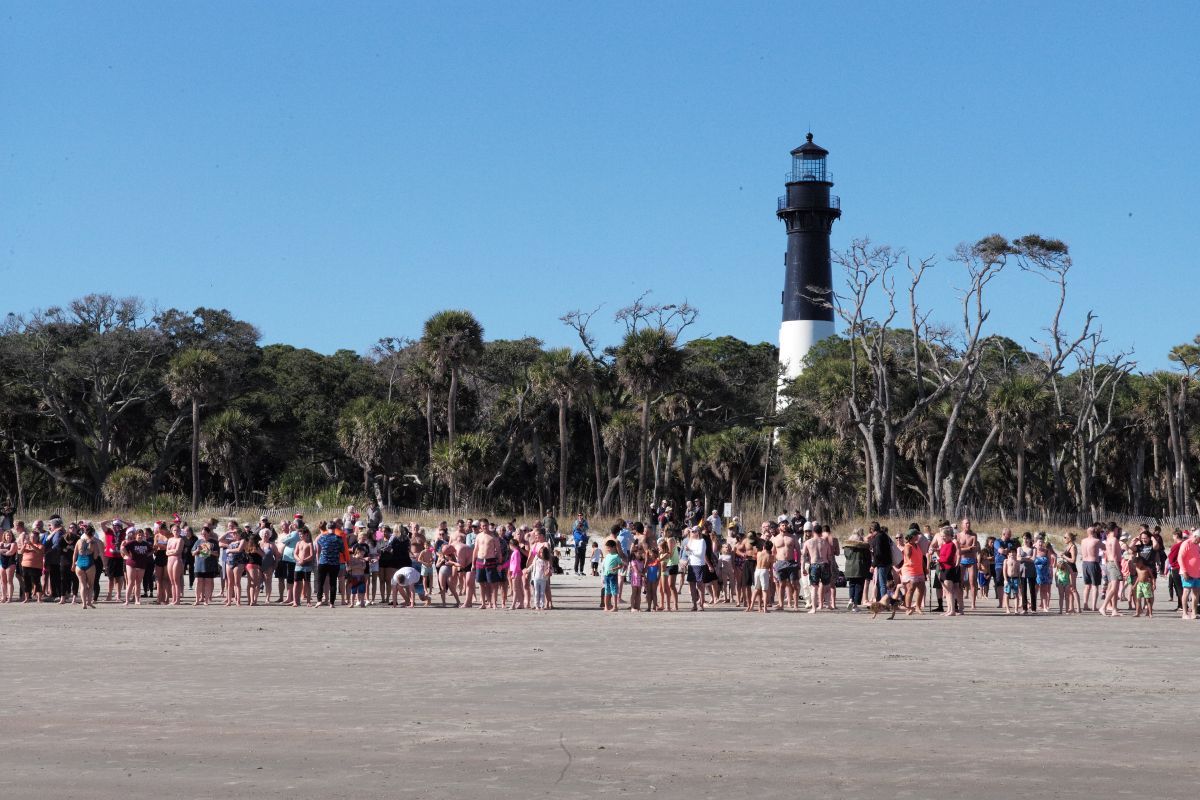Top photo: David Arnal tends to his bees at the Coastal Discovery Museum on Hilton Head Island.
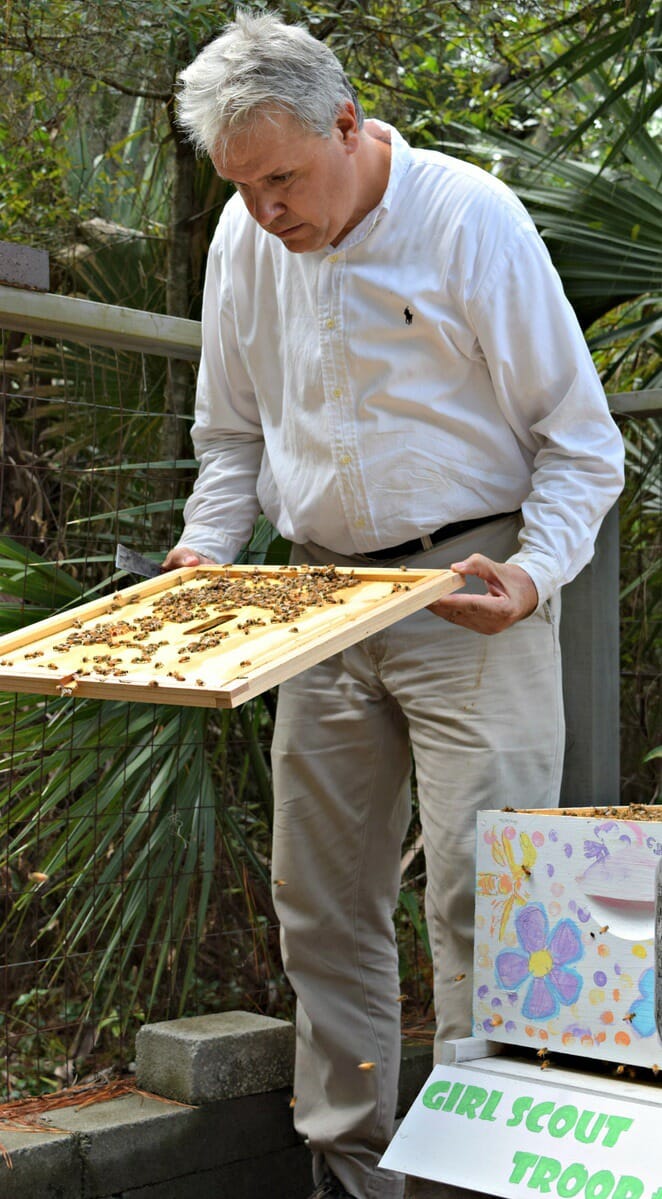
By Aileen Goldstein
Participants of a segway tour make their way along a trail through the property of Honey Horn, where the Coastal Discovery Museum is located on Hilton Head Island.
Along the path, the tour guide points out the museum’s beehive and David Arnal, the beekeeper, smiles and waves from within the fenced in area.
Arnal is tending to five beehives at the museum.
He stuffs dried pine straw into the barrel of a beekeeper’s smoker and lights a fire so the needles smolder. The result is a cold smoke that mimics a wildfire and the bees then begin to gorge themselves on honey in preparation to swarm, the bee’s natural response to the threat of a wildfire.
Once full of honey, the bees are less likely to sting, allowing Arnal the opportunity to check on the health of hives.
As Arnal removes the trays of the hive, he is searching for the queen bee. The bees are busy and continue working, unbothered by the intrusion.
He locates the queen in the middle of the hive and he gently plucks her from the tray.
He marks her with a dab of a white paint pen on her thorax to indicate she is the queen of the hive for 2016.
Arnal explains that it is important to be able to spot the queen easily, as it indicates if a new queen is present or the hive has been taken over by an invasive species of bees known as Africanized bees.
Africanized bees are one of several dangers that threaten the future of honeybees.
“The best line of defense against Africanized honey bees are our managed European colonies,” Arnal says.
Pesticides, a certain mite and a gut parasite also pose threats to the honeybee population in the United States.
Arnal’s passion for the honeybee, after nearly 30 years of beekeeping, has driven him to action to save the bees.
“Every year we are losing 800,000 to 1 million colonies of honeybees in the United States. Last year, we lost 42 percent,” he says.
Arnal says this is significant, since bees are the proverbial canary in the coalmine in regards to the health of our environment.
In an effort to reverse the effects of colony collapse, Arnal founded Bees Across America, a grassroots effort to save honey bees.
“Our goal is to have one million wild colonies of honey bees in the United States in the next 10 years,” he says.
Bees Across America will sell bee houses, a box that is mounted about 15 feet in the air that will attract and provide shelter for swarming bees. The houses will be available in 2017.
“With Bees Across America, we are working to repopulate North America with honey bees, and we are using a beehive that you don’t need to be a beekeeper to use,” Arnal explains.
The bee houses are a way to help grow the wild bee population to ensure the continuation of pollination.
According to Arnal, one out of every three bites of food is directly or indirectly dependant on honey bees or other pollinators.
The obvious examples are vegetable and fruits grown by farmers that end up on the dinner plate.
“Up and down the food chain, there are a number of different things that honey bees pollinate that you’re benefiting from, like hops in your beer,” he says, or the alfalfa hay that feeds the cows.
Arnal is also passionate about helping budding beekeepers and is the director of the Master Beekeeping Program for South Carolina and teaches at the FUNdamentals of Beekeeping School held each February at Oatland Island Wildlife Center in Savannah. The daylong class teaches new beekeepers everything they need to know to start a backyard beehive.
At the Coastal Discovery Museum’s beehive, Arnal gently pumps the smoker, creating a stream of smoke that he directs into the hive built by local Girl Scouts.
Another beehive at the museum is a smaller hive that houses Russian honey bees, a strain resistant to the mites and gut parasite that plague the European honey bees. This hive will soon become an exhibit inside the museum.
“We are putting an observation beehive in the Discovery House so you can look through the glass and watch,” Arnal says as he lifts the lid off the hive to check on his beloved honeybees.
For more information, visit www.beesacrossamerica.com.

